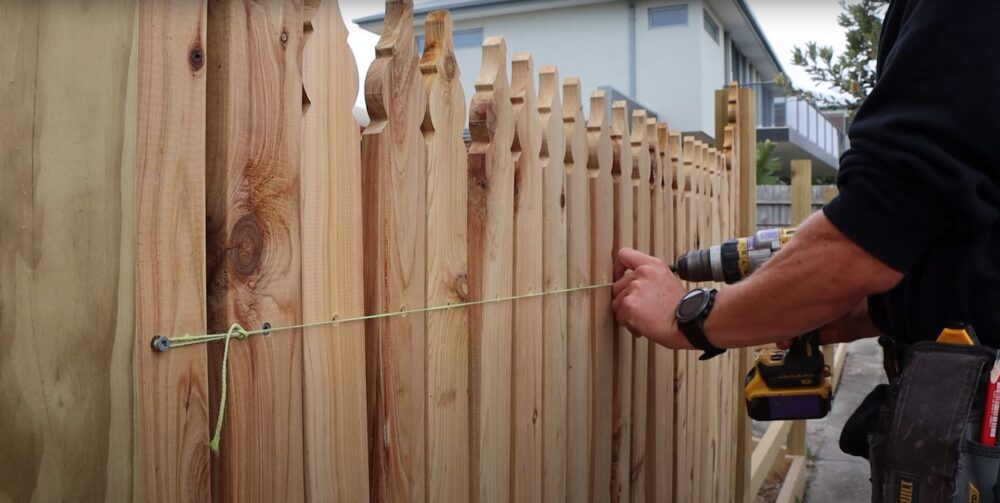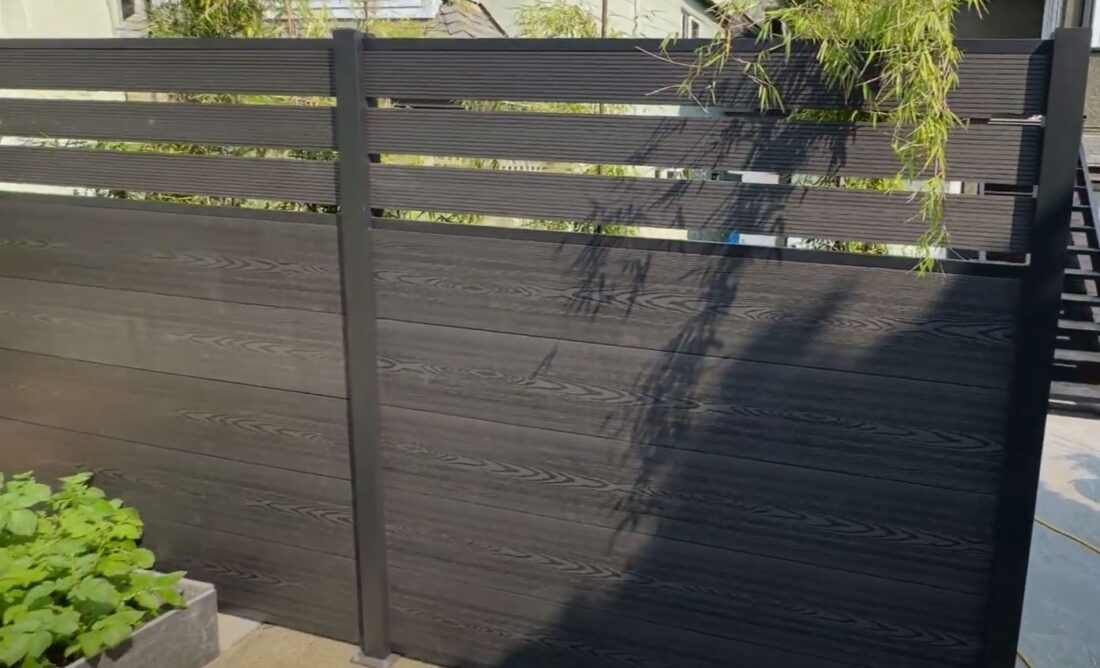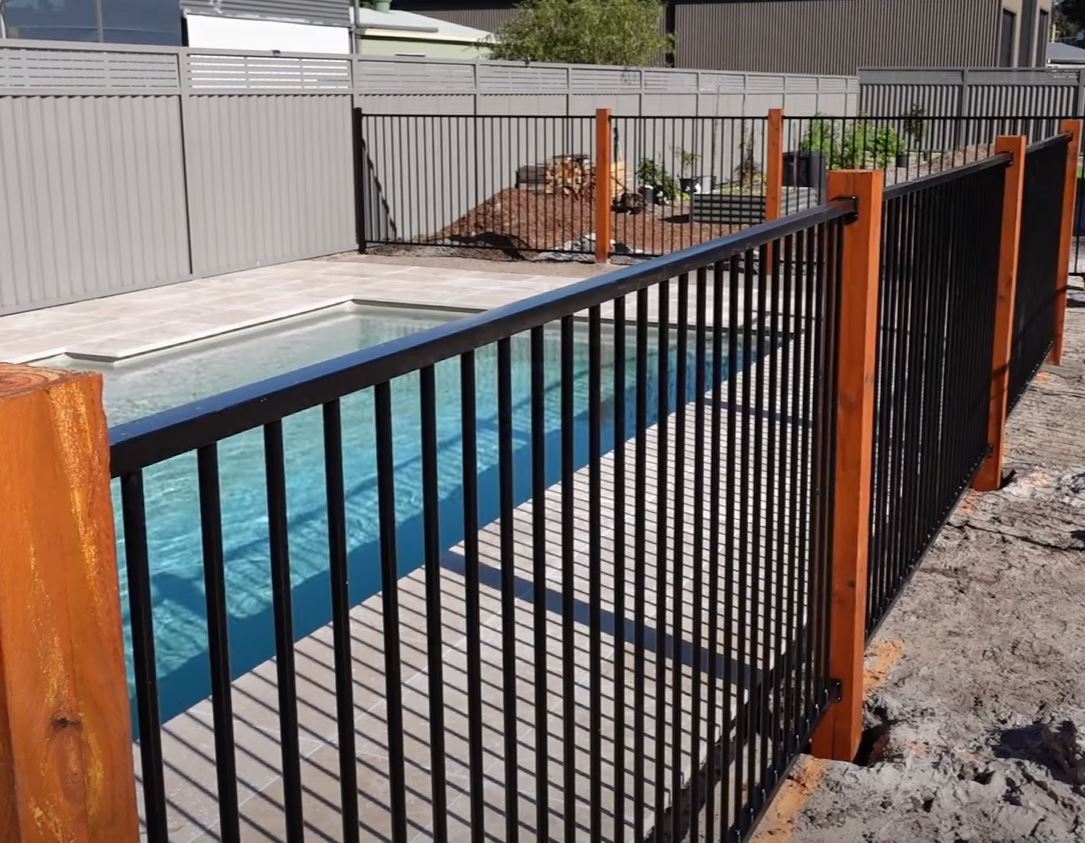Which Fencing Option is The Most Durable?
Determining the Most Durable Fencing Option
When it comes to fencing durability, it’s crucial to consider the material’s ability to withstand Auckland’s diverse weather conditions, from the coastal breezes of Clevedon to the urban environment of Henderson.
Understanding Durability in Fencing
When choosing a fence, durability is a key factor that affects long-term value and maintenance needs. Let’s explore the most durable fencing options available and what makes them stand out.
Wooden Fences
Wooden fences offer a classic, natural look but vary in durability depending on the type of wood and treatment used.
- Types of Wood:
- Pine: Less durable but affordable; requires regular treatment.
- Cedar: Naturally resistant to decay and insects, offering moderate durability.
- Hardwood: Very durable, withstanding weather and pests better than other woods.
- Durability Factors:
- Maintenance: Requires regular staining or painting to prevent rot and insect damage.
- Environmental Impact: Susceptible to moisture and termite damage, especially in humid areas like Auckland.
Vinyl Fences
Vinyl fencing is known for its low maintenance and resistance to the elements.
- Advantages:
- Weather Resistant: Stands up well to rain, wind, and sun without fading or cracking.
- Pest Resistant: Does not attract termites or other pests.
- Durability Factors:
- Longevity: Can last 20-30 years with minimal maintenance.
- Flexibility: Resistant to impact, making it less likely to break.
Metal Fences
Metal fences, including steel and aluminium, are renowned for their strength and longevity.
- Types of Metal:
- Steel: Very strong and secure but can rust if not properly treated.
- Aluminium: Lightweight and rust-resistant, making it ideal for coastal areas.
- Durability Factors:
- Coatings: Galvanized or powder-coated finishes can prevent rust and increase lifespan.
- Maintenance: Steel requires periodic rust protection; aluminium is virtually maintenance-free.
Composite Fences
Composite fences combine wood fibers and plastic to create a durable, eco-friendly option.
- Advantages:
- Rot and Pest Resistant: Unaffected by moisture and insects.
- Low Maintenance: Requires minimal upkeep, similar to vinyl.
- Durability Factors:
- Longevity: Can last 25-30 years.
- Environmental Resistance: Withstands weather extremes without warping or cracking.
Steel and Wrought Iron Fencing: The Pinnacle of Durability
- Robustness: Steel and wrought iron are the top contenders for durability. Their strength is unparalleled, making them ideal for security and longevity.
- Weather Resistance: These materials resist the harshest weather conditions, from strong winds to corrosive salt air.
- Maintenance: While they require occasional painting or rust treatment, their structural integrity remains solid over decades.
Aluminium Fencing: Low Maintenance
- Corrosion Resistance: Aluminium’s resistance to corrosion gives it a significant edge, especially in areas with high humidity or coastal air.
- Strength vs. Weight: It offers a good balance between strength and lightweight properties, although it’s not as robust as steel or wrought iron.
- Maintenance Ease: Low maintenance needs make aluminium a practical choice for those seeking durability without constant upkeep.
Timber Fencing: Natural Durability with Maintenance
- Natural Resistance: Certain timber types, like cedar and redwood, have natural resistance to rot and pests.
- Treatment Needs: Regular treatments are required to maintain its durability, especially against moisture and termites.
- Aesthetic and Environmental Considerations: Timber provides a natural aesthetic and is a renewable resource, but its longevity is less than metal options.
PVC and Vinyl Fencing: Synthetic Durability
- Weatherproof Nature: PVC and vinyl are highly resistant to weather elements, including UV rays and moisture.
- Low Maintenance: These materials do not require painting or staining, maintaining their appearance over time.
- Strength Limitations: They are not as strong as metal options and can become brittle over time, especially in colder climates.
Health and Safety Considerations
- Installation Risks: Professional fence installation is recommended for all fencing types to ensure safety, especially for heavy materials like steel or wrought iron.
- Chemical Treatments: Timber fencing may require chemical treatments that should be handled with care.
Choosing the Right Fencing for Your Auckland Property
The most durable fencing option depends on specific needs and local conditions. Quality Fencing Auckland offers expert advice and fence installation services, ensuring the right balance of durability, aesthetic, and practicality for your property. Whether in the coastal areas of Clevedon or the urban setting of Henderson, selecting the right fencing material can significantly impact the longevity and functionality of your fence.
| Feature | Steel/Wrought Iron Fencing | Aluminium Fencing | Timber Fencing | PVC/Vinyl Fencing |
| Durability | Extremely high | High | Moderate (with maintenance) | Good |
| Strength | Strongest | Strong but lighter | Naturally strong, varies with type | Less strong than metal |
| Weather Resistance | Excellent | Excellent | Good (with treatments) | Very good |
| Maintenance Requirements | Occasional rust treatment | Low | Regular treatments needed | Minimal |
| Aesthetic Appeal | Classic, elegant | Modern, sleek | Natural, rustic | Clean, modern |
| Installation | Professional recommended | Professional recommended | Professional recommended | Relatively easier |
| Environmental Impact | Recyclable but energy-intensive in production | Recyclable, less energy-intensive | Renewable but requires treatments | Not biodegradable, but recyclable |
| Suitability for Auckland | Ideal for high-security areas in places like Henderson | Versatile, good for coastal areas like Clevedon | Fits natural landscapes, requires care in humid areas | Good for varied climates, not as strong as metal |
| Services by Quality Fencing Auckland | Provided | Provided | Provided | Provided |
Key Takeaways: Choosing the Most Durable Fencing Material
Optimal Strength and Security
Steel and wrought iron fencing offer the highest level of durability and strength, making them ideal for security-focused areas and properties in urban settings like Henderson.
Balancing Durability with Aesthetics
Aluminium fencing provides a mix of durability and modern aesthetics, suitable for diverse environments, including coastal areas like Clevedon.
Natural Appeal with Maintenance Requirements
Timber fencing offers a natural, rustic look but requires regular maintenance and treatments to maintain its durability, especially in humid Auckland climates.
Low Maintenance Synthetic Options
PVC and vinyl fencing are weather-resistant and low maintenance but do not match the strength and durability of metal fencing options.
Environmental Considerations
While timber is a renewable resource, it requires chemical treatments. Metal options are recyclable but have higher energy costs in production.
Professional Installation for Safety and Longevity
Regardless of the material chosen, professional installation by a company like Quality Fencing Auckland ensures safety, durability, and proper adherence to local Auckland regulations and conditions.
Frequently Asked Questions About Fencing Materials and Options
What Are the Most Durable Fencing Materials?
Steel and wrought iron are the most durable fencing materials, offering superior strength and longevity.
Is Aluminium Fencing Suitable for Coastal Areas?
Yes, aluminium fencing is ideal for coastal areas due to its corrosion resistance.
How Often Does Timber Fencing Need Maintenance?
Timber fencing typically requires annual maintenance, including treatments for weather resistance.
Can PVC Fencing Handle Extreme Weather?
PVC fencing is quite resilient in various weather conditions, including extreme temperatures and UV exposure.
What Fencing Material is Best for Security?
For high-security needs, steel or wrought iron fencing is recommended due to its strength and durability.
Are Metal Fences Recyclable?
Yes, both steel and aluminium fences are recyclable, making them environmentally friendly options.
Do Timber Fences Require Special Treatments?
Timber fences need treatments to protect against rot, pests, and weather damage.
How Long Can I Expect an Aluminium Fence to Last?
Aluminium fences can last over 30 years with minimal maintenance.
Is It Possible to Paint Aluminium Fencing?
While aluminium fencing can be painted, it usually comes pre-coated in a variety of colours.
What Is the Cost Difference Between Timber and Metal Fencing?
Metal fencing, especially steel and wrought iron, is generally more expensive than timber fencing.
Which Fencing Type Offers the Most Privacy?
Timber and PVC fencing typically offer more privacy due to their solid panel designs.
How Does Weather Affect Steel Fencing?
Steel fencing can rust over time if not properly treated or maintained, especially in humid conditions.
What Are the Benefits of PVC Fencing Over Timber?
PVC fencing requires less maintenance than timber and is not susceptible to rot or pest damage.
Can Timber Fencing Be Environmentally Friendly?
Timber is a renewable resource, but its environmental friendliness depends on the source of the wood and the treatments used.
How Do I Choose the Right Fencing for My Auckland Property?
Consider factors like durability, maintenance, aesthetic preferences, and your property’s specific needs when choosing fencing.
Are There Customisable Options for Metal Fencing?
Yes, metal fencing, especially wrought iron, offers various customisable designs and patterns.
What Maintenance Does Aluminium Fencing Require?
Aluminium fencing requires minimal maintenance, mainly occasional cleaning.
Can Steel Fencing Be Custom Painted?
Steel fencing can be custom painted, though it requires proper surface preparation and suitable paint for durability.
Is Timber Fencing Suitable for All Climates?
Timber fencing can be used in various climates but may require more maintenance in very humid or wet regions.
Why Should I Choose Quality Fencing Auckland for My Fencing Needs?
Quality Fencing Auckland offers expert advice, a wide range of material choices, and professional installation tailored to Auckland’s diverse climatic conditions and specific property requirements.
Other Locations:



